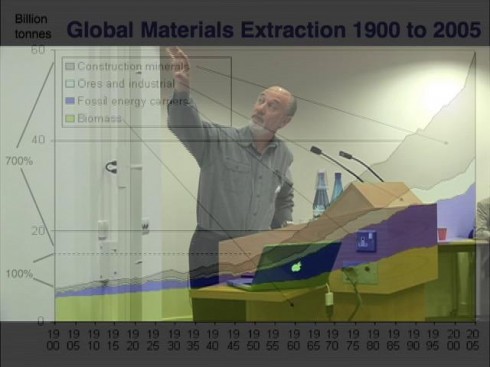Transition Culture has moved
I no longer blog on this site. You can now find me, my general blogs, and the work I am doing researching my forthcoming book on imagination, on my new blog.
Come find me at robhopkins.net
Archive for “Politics” category
Showing results 16 - 20 of 154 for the category: Politics.
19 May 2012
Here is a list of the books I am working my way through at the moment or have recently finished, I hope they might point you to some recently published books you may find useful and interesting. So, in no particular order:

Michael Mann (2012) The Hockey Stick and the Climate Wars: dispatches from the front lines. Columbia University Press.
Michael Mann is the principal creator of the (in)famous ‘Hockey Stick’ graph which showed that the warming of the Earth’s atmosphere over the last 100 years is in excess of historic warming, and clearly linked to increased CO2 emissions. The graph achieved great prominence, as a result of which he became a target of the fossil fuel industry, in particular during the co-ordinated assault on climate science known as ‘Climate Gate’, where emails, including his, were hacked from the University of East Anglia.
Read more»
21 Dec 2011

Surely in our present and unfolding predicament, to recalibrate our economy as a Steady State economy requires an enormous amount of infrastructure, investment and maybe we don’t have that kind of resource any more. Might the kind of more localised world that Transition is talking about be what we get by default rather than by design?
There are many possible futures out there. I think that what I see is a huge amount of resources in our economy, both in terms of capital equipment, intellectual effort, finance, being directed towards the growth agenda. A different agenda, a different ambition for our society and our economy away from the pursuit of growth, would automatically free up, at least in principle, a lot of these resources.
Read more»
20 Dec 2011
 I had the privilege recently of speaking with Peter Victor, Professor in Environmental Studies at York University and author of ‘Managing without growth’ (you can see his full bio here). At a time when the obsession with making our economies grow again is close to hysteria, Peter’s work asks the question as to whether economic growth is the best way to achieve what we want from a society; employment, happiness, good public services, increased equality and so on, and concludes we could have an economy that isn’t growing, but which is actually better at those things. Having read his fascinating book, it felt like a good time to give him a call (I will break this into 2 posts, one today and one tomorrow).
I had the privilege recently of speaking with Peter Victor, Professor in Environmental Studies at York University and author of ‘Managing without growth’ (you can see his full bio here). At a time when the obsession with making our economies grow again is close to hysteria, Peter’s work asks the question as to whether economic growth is the best way to achieve what we want from a society; employment, happiness, good public services, increased equality and so on, and concludes we could have an economy that isn’t growing, but which is actually better at those things. Having read his fascinating book, it felt like a good time to give him a call (I will break this into 2 posts, one today and one tomorrow).
Read more»
30 Nov 2011
Our eighth object in the series illustrating some of the stories from ‘The Transition Companion’, posted before I head off to London for the London Transition Groups Gathering, is a small pennant from Monteveglio in Italy.
Read more»
22 Nov 2011
 After my talk in Norwich last week, I met a local authority emergency planner, who said that he had found the talk, and the Transition take on resilience, very illuminating. He pointed me in the direction of the latest ‘Strategic National Framework on Community Resilience’, the latest “national statement for how individual and community resilience can work”, published by the Cabinet Office in March of this year. It is a fascinating document, and is indeed the first official government document on community resilience that refers explicitly to the Transition movement, and as such deserves a post reflecting on it. It also offers a tantalising glimpse into what a government response to peak oil, climate change and economic contraction might look like if anyone had the imagination to create one.
After my talk in Norwich last week, I met a local authority emergency planner, who said that he had found the talk, and the Transition take on resilience, very illuminating. He pointed me in the direction of the latest ‘Strategic National Framework on Community Resilience’, the latest “national statement for how individual and community resilience can work”, published by the Cabinet Office in March of this year. It is a fascinating document, and is indeed the first official government document on community resilience that refers explicitly to the Transition movement, and as such deserves a post reflecting on it. It also offers a tantalising glimpse into what a government response to peak oil, climate change and economic contraction might look like if anyone had the imagination to create one.
Read more»





